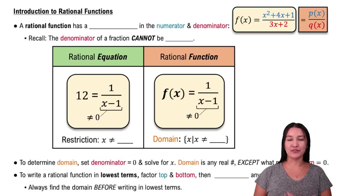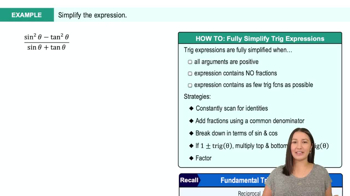Textbook Question
Consider the graph of y=cot^−1 x(see Section 1.4) and determine the following limits using the graph.
lim x→−∞ cot^−1x
 Verified step by step guidance
Verified step by step guidance Verified video answer for a similar problem:
Verified video answer for a similar problem:



 6:47m
6:47mMaster Finding Limits Numerically and Graphically with a bite sized video explanation from Patrick
Start learning